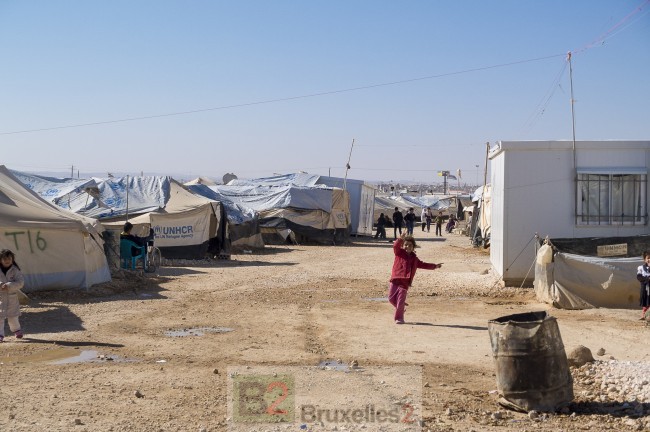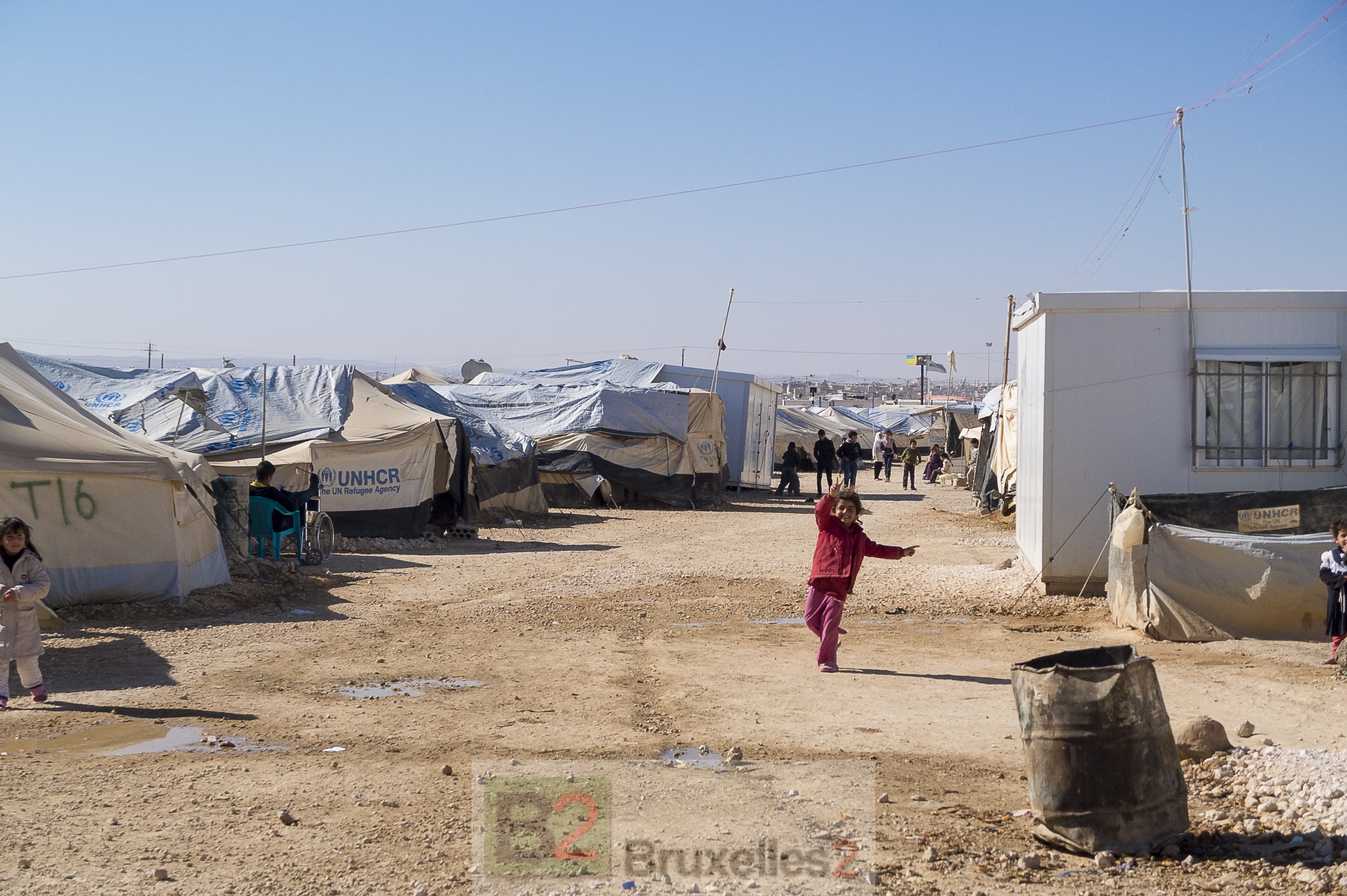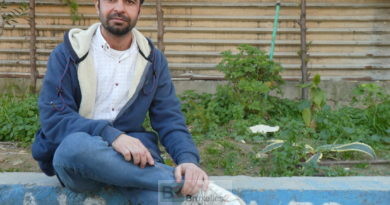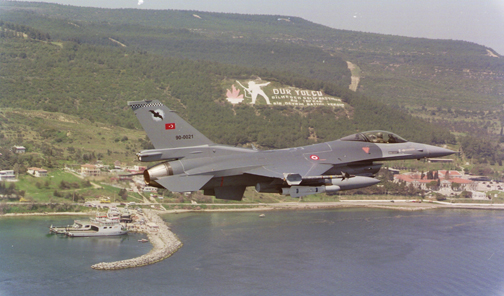The Syrian conflict continues. The refugees stay. Report from Jordan

(BRUSSELS2 - in Jordan) Tahir sells his food aid vouchers to feed his wife and two children. Fadijah tries to pay her rent. Safa is cold in her tent at Zaatari camp. Anas has only one dream: to go back to Syria. They fled the regions of Aleppo, Damascus and Deraa. They crossed the Jordanian border by the main road or by the desert. Together, they form a tiny part of the 600 Syrian refugees registered by the United Nations High Commissioner for Refugees (UNHCR) in Jordan. Picked up by the army, placed in camps or in host communities, they wait to be able to return to their country once the war is over. But the Syrian conflict lasts, the "provisional" settles and the solidarity of yesterday gives way to new trafficking. Reporting.
Seven days to cross the border
“It took us almost 7 days to cross the Jordanian border” says Safa, a 14-year-old girl who fled the Syrian city of Deraa a month ago, besieged by the regime's armed forces. “With my family, we drove through the border post in Iraq”. For these inhabitants of Deraa, located only 5 kilometers from the western Jordanian border, the detour is obligatory. Because the western portion of the border is " closed at least unofficially by the Jordanian authorities since March 2013, following the resurgence of fighting in the region. For Safa, it's the beginning of a long journey: after having traveled several hundred kilometers in the Syrian desert, she crosses the border at the At Waleed post on the Iraqi border, before being picked up by the Jordanian army. . The family then begins the journey in the opposite direction. Direction: Refugee Registration Center run by UNHCR and located in Raba Al Sarhan. Finally recognized as refugees, Safa and his family settled in the Zaatari camp, which now has more than 80 people: “ Once we arrived at the camp, we thought we weren't cold anymore, but we're still cold." laments the teenager. Because the wind infiltrates between the sheets of the shelters. And the winter promises to be harsh: "We were given liters of gas but we don't have a stove yet" Says Safa. However, she will have to adapt or leave the Zaatari camp. But getting out of this camp, surrounded by barbed wire, is not done with impunity. It has a cost.
Settling outside the camps: a chance?
Originally from the village of Zabdean, near the city of Damascus, Fadijah spent only 10 days in the Zaatari refugee camp. “I was lucky,” admits this mother of five children. Because to leave the camp, “You have to find a Jordanian and give him between 150 and 500 Dinars (between 155 and 515 euros) ". For Fadijah, it was simple: “ my sister's husband, who is Jordanian, advanced me the money”. For a year, Fadijah has been living with her brother-in-law in the Jordanian capital, Amman. And space is tight: “three bedrooms and a kitchen for nine people”. Initially, he did not ask his in-laws for rent. But now, “it has become too expensive for him”. The influx of refugees has caused real estate prices to soar, tripling in two years. Humanitarian assistance was Fadijah's only recourse. Present inside the cities, the humanitarian organizations, the UNHCR, the Catholic organization Caritas, or even CARE offer emergency aid. Cash distribution programs, in the form of debit cards, with the aim of giving refugees like Fadijah a certain autonomy. But it ends very quickly. Because it is forbidden for refugees to work.
Work in fear
“I am not allowed to work” says Tahir, a 27-year-old Syrian refugee in Amman with his wife and two children. His status effectively prohibits him from entering the labor market. But that didn't stop him from moonlighting. Tahir did odd seasonal jobs, discreet jobs, always at night “not to be noticed” he says. But that wasn't enough. " This is the second time they caught me working. I had to sign a paper to say that I was not going to continue”. And the Jordanians are not joking: “If they catch me next time, they send me back to Syria” says Tahir. Out of fear, he stopped working six months ago. Now, to survive, “I sell food aid coupons to get cash”. But with its “two coupons per month”, Tahir can't go far. Until then, we "got out". But after ? For many, the only solution is still to return home.
One goal: to go back to Syria
“Go back to Syria” This is the goal that Anas has set himself. For this 25-year-old Syrian, with a degree in psychology, it's the only way to move forward in life. Over there, “I could do my doctorate” he says hopefully. In Syria, Anas taught psychology to students. Now, he replaces a teacher for the holidays in one of the four schools in the Zaatari camp. Anas has no more papers and cannot prove his qualifications. "Here I have to repeat six years at university because my diplomas are not recognized" he explains. Besides the diplomas, Anas wants to join his mother and his sister. Former refugees from the camps, they are among the 300 to 400 people who make the reverse journey each month from the Zaatari camps to the Syrian border. “They left by bus to a safer place in Syria near Deraa”. In the meantime, Anas hasn't heard from them and is reluctant to take the leap: too dangerous. “A single man of my age can hardly cross the Syrian border. I could be mistaken for a resister. »
(Loreline Merelle)
Read also:


